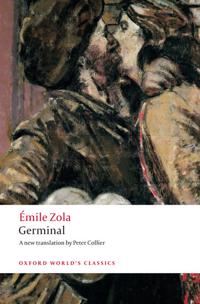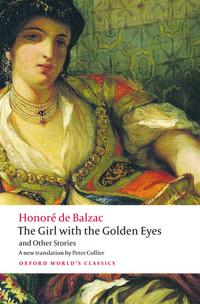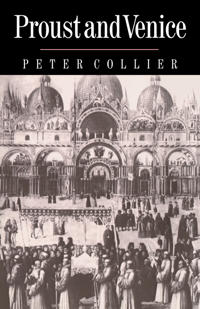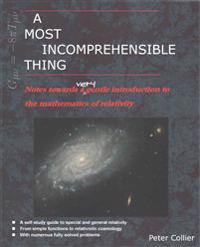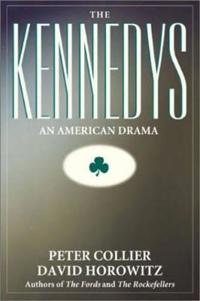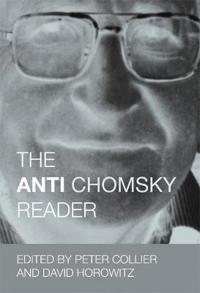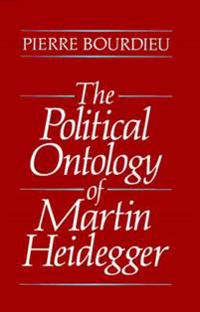Germinal (Pocket)
avEmile Zola, Peter Collier, Robert Lethbridge
ISBN: 9780199536894 - UTGIVEN: 200808Zola's masterpiece of working life, Germinal (1885), exposes the inhuman conditions of miners in northern France in the 1860s. By Zola's death in 1902 it had come to symbolise the call for freedom from oppression so forcefully that the crowd which gathered at his State funeral chanted 'Germinal! Ge[...]
The Girl with the Golden Eyes and Other Stories (Pocket)
avHonore de Balzac, Peter Collier, Patrick Coleman
ISBN: 9780199571284 - UTGIVEN: 201301'What holds sway over this country without morals, beliefs, or feelings? Gold and pleasure.' Sexual attraction, artistic insight, and the often ironic relationship between them is the dominant theme in the three short works collected in this volume. In Sarrasine an impetuous young sculptor falls in[...]
Proust And Venice (Pocket)
avPeter Collier
ISBN: 9780521673389 - UTGIVEN: 2005-06Proust's famous novel A la recherche du temps perdu (Remembrance of Things Past) is a fascinating exploration not only of memory and desire, of high society and everyday life, but also of art. The study focuses on Venice, one of the hero's central obsessions, and shows how a whole network of allusio[...]
The Kennedys (Häftad)
avPeter Collier, David Horowitz
ISBN: 9781893554313 - UTGIVEN: 200201"The Kennedys: An American Drama" is a fascinating and brilliantly comprehensive history that brings together, for the first time, all the complex strains of the story of the Kennedys' rise and fall.[...]
Geprüfter Handelsfachwirt werden (Häftad)
avPeter Collier, Volker Wedde
ISBN: 9783794908554 - UTGIVEN: 2013-07Hallo Ruhestand! (Inbunden)
avPeter Collier, Luitgard Jany, Berthold Jany
ISBN: 9783794908929 - UTGIVEN: 2014-08The Anti-Chomsky Reader (Pocket)
avPeter (EDT) Collier, David (EDT) Horowitz, Peter (EDT) Collier
ISBN: 9781893554979 - UTGIVEN: 2004-05This description is based on the MIT professor's writings on linguistics in the 1950s; but beginning with his criticism of the Vietnam War in the 1960s, Chomsky became much better known for his radical politics than for his theories of language. Over the past forty years he has gained a devoted foll[...]
The Political Ontology of Martin Heidegger (Pocket)
avPierre Bourdieu, Peter (TRN) Collier, Pierre Bourdieu
ISBN: 9780804726900 - UTGIVEN: 1996-04Martin Heidegger's overt alliance with the Nazis and the specific relation between this alliance and his philosophical thought - the degree to which his concepts are linked to a thoroughly disreputable set of political beliefs - have been the topic of a storm of recent debate. Written ten years befo[...]

